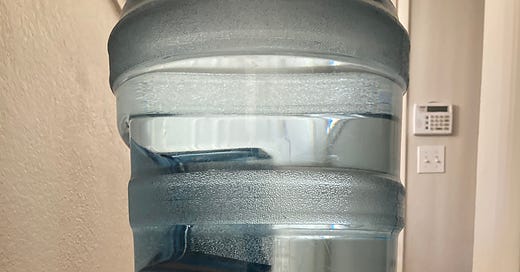Around the Water Cooler
FCC to scrutinize co-op agreements for underwriting violations; new sponsor ID rules on hold; FCC says strategic goal is to “protect free speech," but commissioner, experts say otherwise.
Official comments following an enforcement action caught our eye after the FCC’s Media Bureau announced they would be scrutinizing “co-op arrangements” between non-commercial broadcasters. This comes after an LPFM station in Virginia went afoul of the underwriting rules.
Some groups of geographically related stations have formed coalitions or other kinds of regional cooperation. They work together to submit grants or secure underwriting for the benefit of everyone in the group. In the enforcement case, a group of stations had banded together to hire an agent to sell underwriting and operate facilities for their stations. One Virginia station entered into a Consent Decree to resolve an investigation into whether it had violated underwriting rules by running ads. LPFM stations cannot run ads. They can acknowledge sponsorships, but they cannot promote the sponsor with price information, purchase incentives, qualitative claims or calls to action.
Investigators did not find fault with the co-op agreement itself. However, agency officials said that they would be looking at such agreements more closely in the future. Hat tip to the Broadcast Law Blog for the explainer.
Inside Radio has the best explainer for the FCC’s delay in implementing new rules for identifying sponsors to ensure stations keep up with requirements related to sponsorships by foreign governments.
One more hat tip to Broadcast Law blog for reading the FCC’s latest budget docs and reporting that “protecting free speech” is listed among its strategic goals.
In a discussion with the Freedom of the Press Foundation, FCC Commissioner Anna Gomez explains how hijacking the concept of the public interest is being used to attack the First Amendment.
To help you navigate your station’s programming through these choppy waters, consider this thoughtful conversation as two arts leaders, including one with global experience in censorship, talk about booking content in today’s intolerant environment.
Opportunities for Engagement – Letters Due June 25
We encourage you to share these two national sign-on opportunities with partners in your community:
✅ Emergency Response Letter Sign-On
Invite county officials, emergency managers, state broadcasters associations, and other public safety leaders to sign a public letter emphasizing the essential emergency communication role of public radio.
⏳ Deadline: 7 p.m. ET on June 25
✅ State and Local Lawmaker Letter Sign-On
Ask state legislators, mayors, city councilors, and county commissioners—across the political spectrum—to sign a bipartisan public letter highlighting your station’s local impact, from emergency alerting and community events to public meetings, sports, and cultural preservation.
⏳ Deadline: 7 p.m. ET on June 25
Thanks to Rima Dael, CEO of National Federation of Community Broadcasters, for the heads-up.
This FCC Actions Alert is produced by the volunteers at the Community Media Assistance Project under the direction of CMAP Executive Director, Betty McArdle. We monitor many sources of information about the Federal Communications Commission, federal communications law, and community developments important to your station and your community. The information provided in this newsletter is for general informational purposes only and should not be considered as financial or legal advice. Always consult with a qualified professional before making any decisions based on the content herein. If you have a news tip, please email us at betty@c-map.org.
Communications Act of 1934, Sect. 326.
Nothing in this Act shall be understood or construed to give the Commission the power of censorship over the radio communications or signals transmitted by any radio station, and no regulation or condition shall be promulgated or fixed by the Commission which shall interfere with the right of free speech by means of radio communication.





